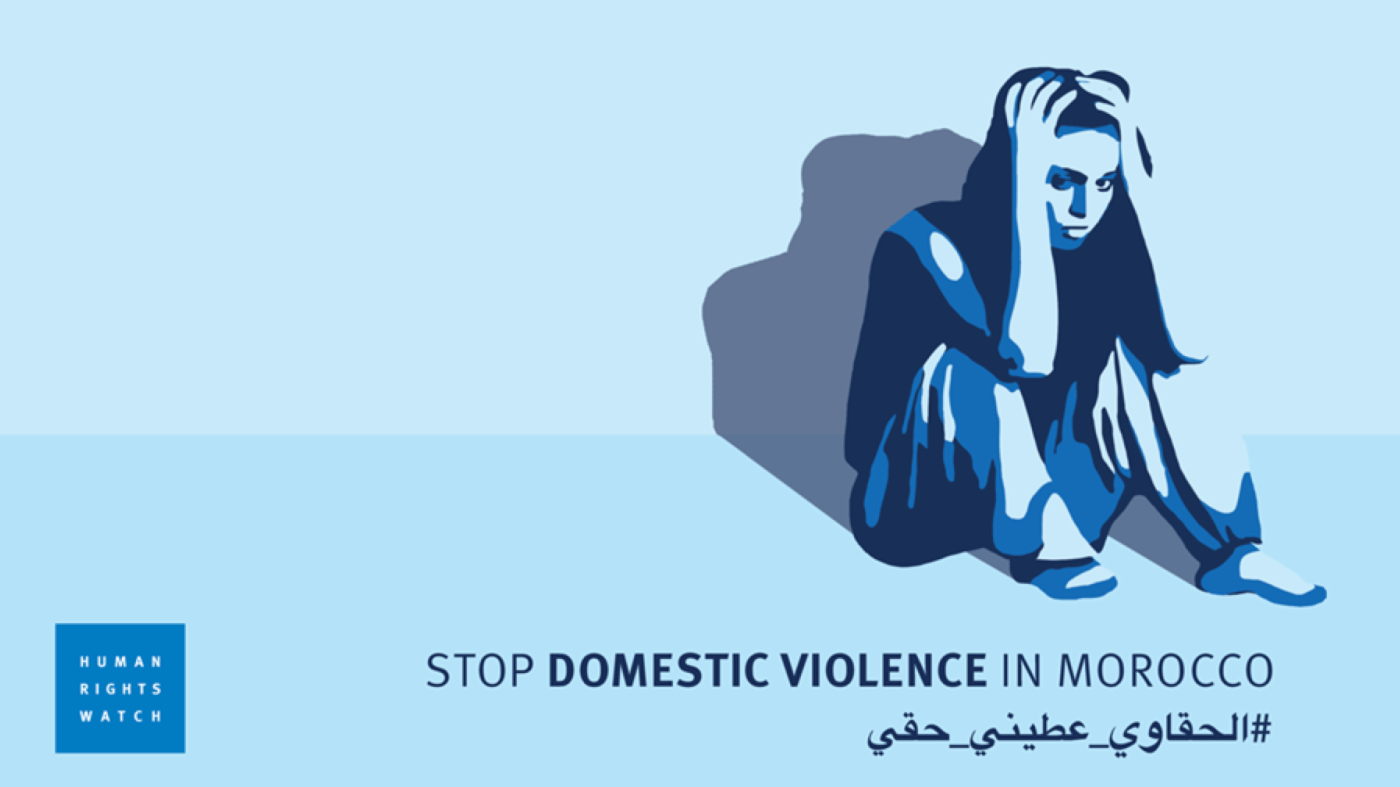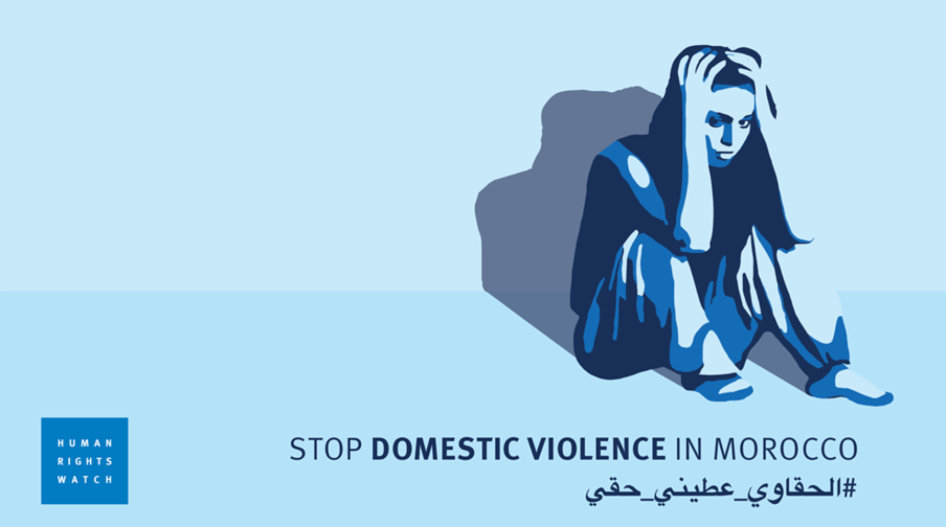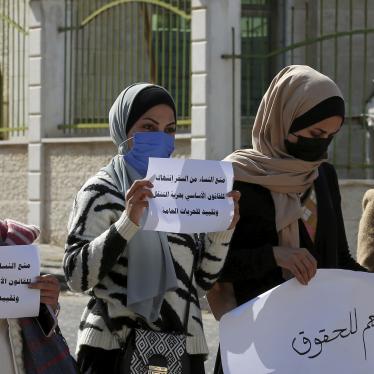Moroccan authorities often fail to prevent domestic violence, protect survivors, and punish abusers. We want the Moroccan Minister of Women to strengthen and adopt laws to improve protection for victims of domestic violence. We are asking for your support to back women’s calls for a strong law! Ilham is a domestic violence survivor who wants the government to help women like her. Here is her story.
Ilham (name changed to protect her privacy), 26, married in 2011 and lived with her husband in Casablanca, Morocco. They had twins, a boy and girl, who were 3 years old at the time of the interview.
I went to the police many times. Even covered with blood or almost naked. They would do nothing for me. They would tell me that they don’t have the right to go with me into the house. They would tell me to go to the doctor to get a medical certificate but I had no ID and no money with me.
Ilham left her husband in August 2015 after he attacked her again. “He was beating me until the neighbors came and helped. If the neighbors hadn’t come, I would be dead now.”
At the time of the interview, Ilham was staying at a private shelter with her children and wanted to apply for a divorce. But her husband had her identification documents, and she had no money to pay a lawyer or court fees. She said: “I haven’t gone to police since I got here because the police will do nothing. If I go to the prosecutor he will say I have no ID.”
-----
Human Rights Watch interviewed “Ilham,” along with 19 other women and girls in Morocco, in September 2015. Her case exemplifies the types of domestic abuse the women experienced and the weak response by the Moroccan government.
Human Rights Watch found that Moroccan authorities often fail to prevent domestic violence, protect survivors, and punish abusers.
Domestic violence survivors like Ilham deserve much more from their government. Morocco should strengthen and adopt laws to improve protection for victims of domestic violence. Human Rights Watch wrote to the Moroccan government, including Bassima Hakkaoui, Minister of Women and Family, to ask the officials to strengthen the bill on violence against women, the penal code reforms, and the criminal procedure reforms in the following areas:
-
Definition and Scope of Application of Domestic Violence Laws: The bills should clearly define “domestic violence,” and criminalize marital rape. In line with UN standards, the definition should include former spouses and individuals in non-marital intimate relationships.
-
Prevention Measures: The bills should require prevention measures, including awareness-raising, educational curricula, and sensitizing the media about violence against women.
-
Law Enforcement and Public Prosecution Responsibilities: The bills should specify police and prosecutor duties in domestic violence cases. They should require police and public prosecutors to coordinate directly, rather than telling complainants to deliver messages between the two.
-
Justice System Responsibilities: The bills should clarify that a domestic violence complainant’s testimony may, in some circumstances, be sufficient evidence for a conviction, without other witnesses.
-
Orders for Protection: The bills should specifically provide for emergency and longer-term protection orders – that is, restraining orders – for domestic violence survivors at risk of abuse. Moroccan law does not currently provide for such orders. The bill should clarify conditions, and establish clear procedures, for both types of orders.
-
Other Services and Assistance for Survivors: The bills should provide for support and services to domestic violence survivors, including shelter, health services, psychosocial care, legal advice, and hotlines. The government should create a trust fund or other financial assistance for survivors of domestic violence.
For more information including our full set of recommendations to the Moroccan government see Morocco: Tepid Response on Domestic Violence
If you want to help women in Morocco like Ilham, call on Bassima Hakkaoui, Morocco’s Women and Family minister, to strengthen the bill on violence against women.




